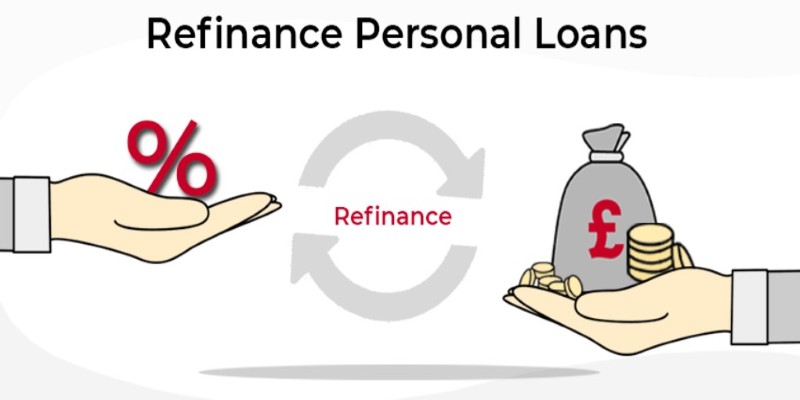Navigating the maze of tax deductions can feel overwhelming, especially when you're self-employed. However, if you’re shelling out for health insurance coverage, there’s good news. The self-employed health insurance deduction could help ease your tax burden by reducing your taxable income. This guide will walk you through everything you need to know about how the self-employed health insurance deduction works.
Why the Health Insurance Deduction Matters for the Self-Employed

One of the benefits of being self-employed is greater financial control, but that often comes with higher costs for necessities like health insurance. Unlike employees who may receive coverage through their employer, self-employed individuals have to shoulder the full cost of health insurance premiums.
The self-employed health insurance deduction offers critical relief by allowing you to deduct 100% of your premiums on your federal tax return, reducing your adjusted gross income (AGI). This deduction effectively lowers the amount of income you’ll pay taxes on, leaving more money in your pocket.
Who Qualifies for the Self-Employed Health Insurance Deduction?
Not everyone can take advantage of this deduction. Here are the requirements to determine if you’re eligible:
You Must Be Self-Employed
To qualify, you need to be one of the following:
- A sole proprietor
- An independent contractor
- A partner in a partnership
- A shareholder in an S corporation who owns more than 2% of the company stock
If you fall into one of these categories, you’re on the right track.
You Need a Net Profit
Your business must generate a net profit in the tax year you’re claiming the deduction. If your business operates at a loss, you won’t be able to claim the health insurance deduction, as it’s limited to your net earnings.
Coverage Must Be in Your Name (or the Business’s)
The health insurance policy must be established under your name, your spouse’s name, or directly in your business’s name. Additionally, the premiums must be paid directly out of pocket. If someone else covers the cost, you can’t claim the deduction.
No Employer-Sponsored Coverage Allowed
If you or your spouse have access to an employer-sponsored health insurance plan, even if you don’t use it, you can’t claim the self-employed health insurance deduction. Availability renders you ineligible.
What Can You Deduct?
The self-employed health insurance deduction specifically applies to premiums. Here’s what you can write off:
- Health Insurance Premiums: Deduct the cost of monthly premiums for yourself, your spouse, and your dependents.
- Dental Insurance: Include premiums for dental or vision insurance in your deduction.
- Long-Term Care Insurance: Premiums for long-term care insurance are deductible, but note that these are subject to annual limits based on your age.
It’s important to keep in mind that this deduction does not extend to co-pays, out-of-pocket medical expenses, or over-the-counter medication.
How to Calculate the Deduction
Calculating your self-employed health insurance deduction isn’t overly complicated, but precision is critical. Here’s a step-by-step outline to ensure accuracy:
1. Calculate Your Net Earnings
First, determine your net earnings from self-employment. This is your business’s income minus your expenses. Be honest and thorough when reporting to avoid discrepancies with the IRS.
2. Factor in Your Premiums
Add up all qualifying health insurance-related premiums you paid during the year, making sure to include dental, vision, and long-term care premiums where applicable.
3. Apply Deduction Limits
The one caveat is that you can't deduct more than your net earnings. If your premiums exceed your net income, only the amount equal to your income is deductible.
For example:
- If your net self-employment income is $40,000 and your health insurance premiums amount to $7,000, you can deduct the full $7,000.
- If your net self-employment income is $5,000 but your premiums are $7,000, you can only deduct $5,000.
4. Report Your Deduction on the Correct Form
Claim the deduction on Schedule 1 (Form 1040). It’s considered an above-the-line deduction, meaning it reduces your AGI but doesn’t require you to itemize your deductions.
Maximizing the Self-Employed Health Insurance Deduction
Here are a few tips to ensure you’re maximizing the potential of this tax-saving opportunity:
Know Your Coverage Options
Research health insurance plans that meet your needs but also remain cost-effective in the long term. Compare premiums, benefits, and coverage requirements before committing.
Consider a Health Savings Account (HSA)
If you have a high-deductible health plan (HDHP), you may qualify for an HSA. Contributions made to an HSA are tax-deductible, and withdrawals for qualifying medical expenses are tax-free, offering even more savings.
Keep Detailed Records
Maintain comprehensive records of your health insurance payments, including invoices, bank statements, or proof of payment. The IRS could request documentation to verify your claims.
Consult a Tax Professional
Tax laws can change, and the self-employed health insurance deduction is no exception. Working with an accountant or tax advisor ensures that all calculations are accurate, and you’re maximizing your deductions without triggering audits.
Common Misconceptions About This Deduction

Knowing these common misconceptions can help you steer clear of errors:
“I Can Deduct Premiums Even with Employer-Sponsored Coverage”
False. If employer-sponsored coverage is available to you or your spouse, you can’t claim the deduction.
“Premiums Paid Using Pre-Tax Dollars Are Eligible”
No. If you’ve already benefited from pre-tax treatment (e.g., through an HSA or cafeteria plan), you can’t double-dip and claim those premiums on your tax return.
“I Can Deduct My Spouse’s Employer Plan Premiums”
Only premiums for a policy under your name, your spouse’s name, or your business name qualify.
Final Thoughts
The self-employed health insurance deduction is a valuable tool to offset business costs and reduce your tax bill. By understanding how it works, keeping accurate payment records, and planning ahead, you can save more and reinvest in your business. If you’re self-employed and not using this deduction, now’s the time to explore its benefits. Use this guide to take control of your finances and maximize your savings effectively.












